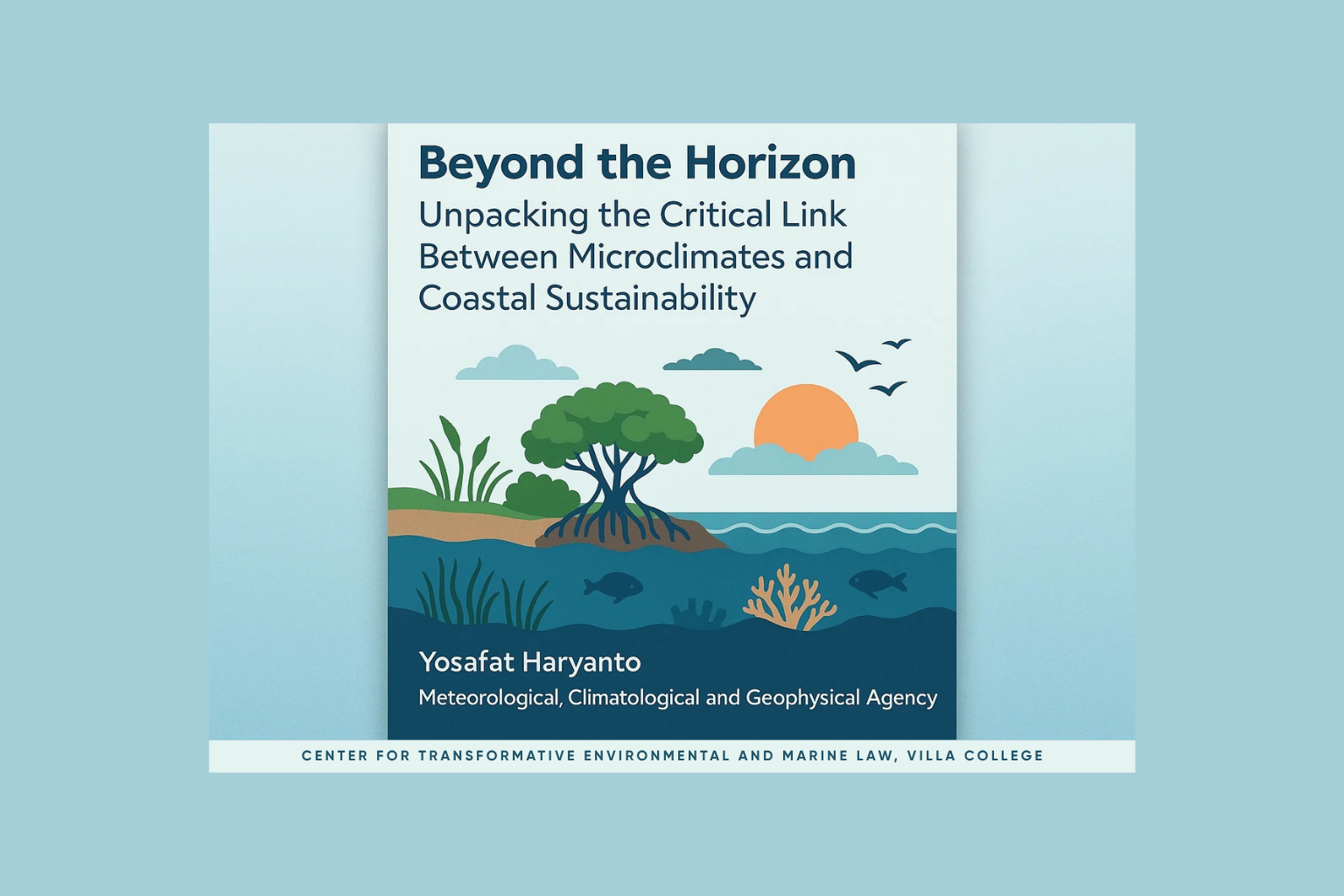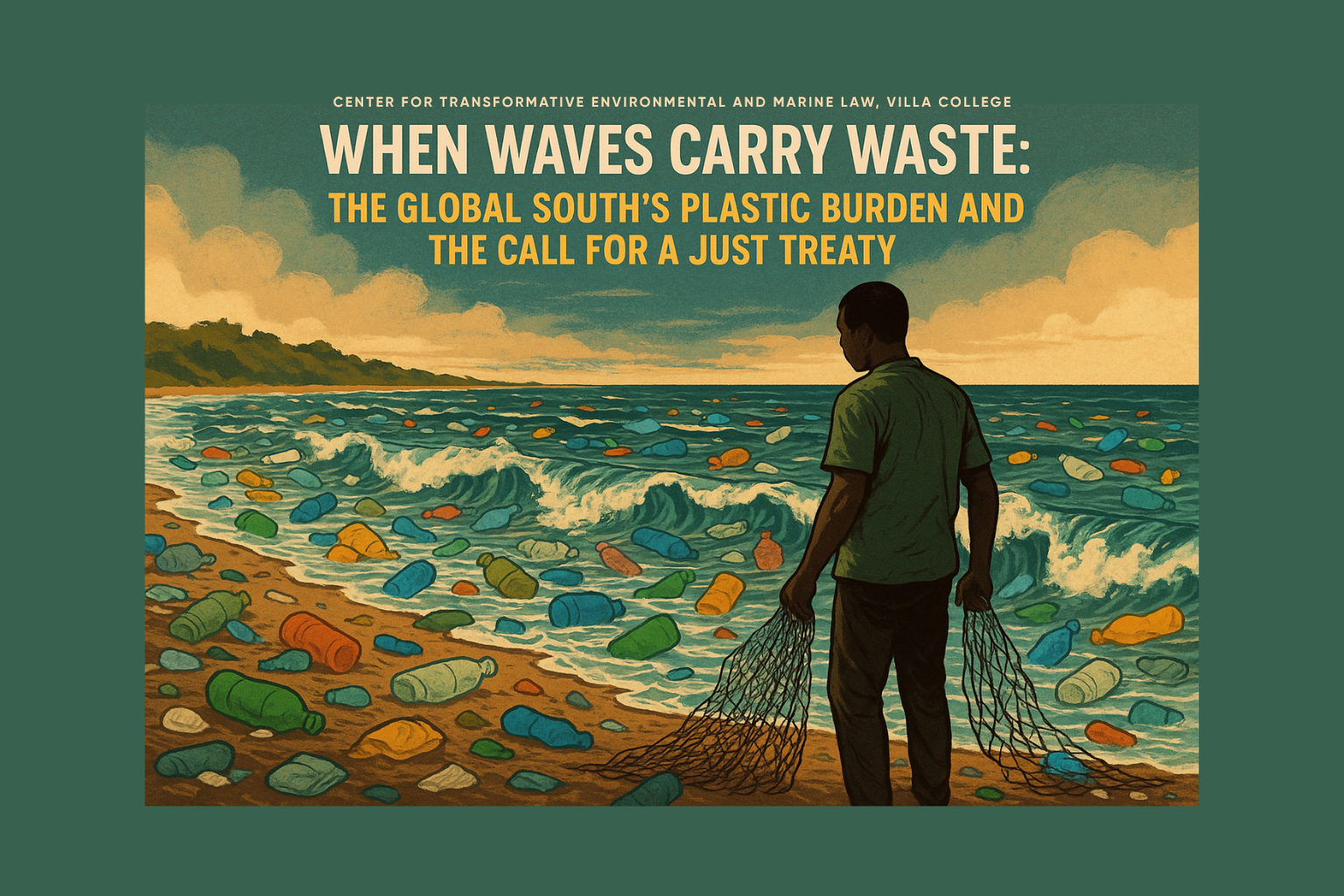The Caribbean's Legal Anchor: Forging a Right to a Healthy Ocean
For the peoples of the Caribbean, the ocean is not merely a backdrop; it is the "golden thread" that has woven together their history, culture, and economy for centuries. A recent insightful paper by Alana Malinde S.N. Lancaster of The University of the West Indies explores the powerful legal and political currents shaping the future of this vital resource. The research delves into how regional commitments, particularly within the Revised Treaty of Chaguaramas, are intersecting with global movements to establish a fundamental right to a healthy ocean, offering a blueprint for resilience in an era of unprecedented environmental challenges.
The foundation of the region's stance is Article 141 of the Revised Treaty of Chaguaramas, a groundbreaking provision that grants "special status" to the Caribbean Sea. This is more than symbolic; it legally obligates the Member States of the Caribbean Community (CARICOM) to protect their shared marine environment from a host of threats, including pollution from shipping, dumping, and hazardous wastes. As Lancaster's analysis points out, this regional commitment provides a potent anchor for broader action. It acknowledges that for these Small Island Developing States (SIDS), which are in reality "large ocean States," the health of the marine environment is inextricably linked to the prosperity and well-being of their people, from supporting fisheries to sustaining the tourism-dependent blue economy.
This regional legal anchor does not exist in isolation. The paper masterfully illustrates the nexus between the Treaty and a web of multilateral processes. This synergy is critical, connecting domestic policy with international law. For instance, the Treaty's environmental protection goals are actively supported by instruments like the Cartagena Convention, which addresses pollution and biodiversity conservation across the Wider Caribbean. Furthermore, this legal framework is gaining new momentum from recent global developments. The landmark advisory opinion from the International Tribunal of the Law of the Sea (ITLOS) has solidified the link between climate change and ocean health, while the formal recognition this year of the human right to a clean, healthy, and sustainable ocean environment provides a powerful new lens through which to view these obligations.
However, the analysis also reveals a critical gap in the region's approach, particularly in the realm of human rights. While Caribbean states have shown immense leadership in climate diplomacy, their engagement with international human rights systems has been less robust. The paper notes a lag in the adoption of key instruments, such as the Protocol of San Salvador which protects economic, social, and cultural rights. Yet, there is a clear and powerful opportunity for progress. The Escazú Agreement, which champions the rights to environmental information, public participation, and justice, is gaining traction in the region and offers a vital mechanism to empower citizens and communities to defend their right to a healthy environment. Revitalizing indigenous instruments like the CARICOM Charter for Civil Society could further entrench these rights within the unique context of the Caribbean.
In conclusion, Lancaster's research presents a compelling case that the Caribbean is at a pivotal moment. By strengthening the connections between its foundational regional treaty, international environmental law, and evolving human rights frameworks, the region can build a truly resilient and sustainable future. The "special status" of the Caribbean Sea is evolving from a legal clause into a comprehensive strategy for survival and prosperity. This integrated approach not only serves the immediate needs of its citizens but also positions the Caribbean as a model for other SIDS across the globe, demonstrating how to navigate the turbulent waters of the climate crisis and secure the fundamental right to a healthy ocean for generations to come.
Lancaster, A. M. S. N. (2025). The Special Status of the Caribbean Sea Under the Revised Treaty of Chaguaramas & the Nexus with Multilateral Processes Supporting the Right to a Healthy Ocean. In T. Sanni (Ed.), The Oceans-Sustaining what Sustains Us (pp. 141-154). Center for Transformative Environmental and Marine Law, Faculty of Shariah and Law, ³Ô¹ÏÍø, Maldives. .



